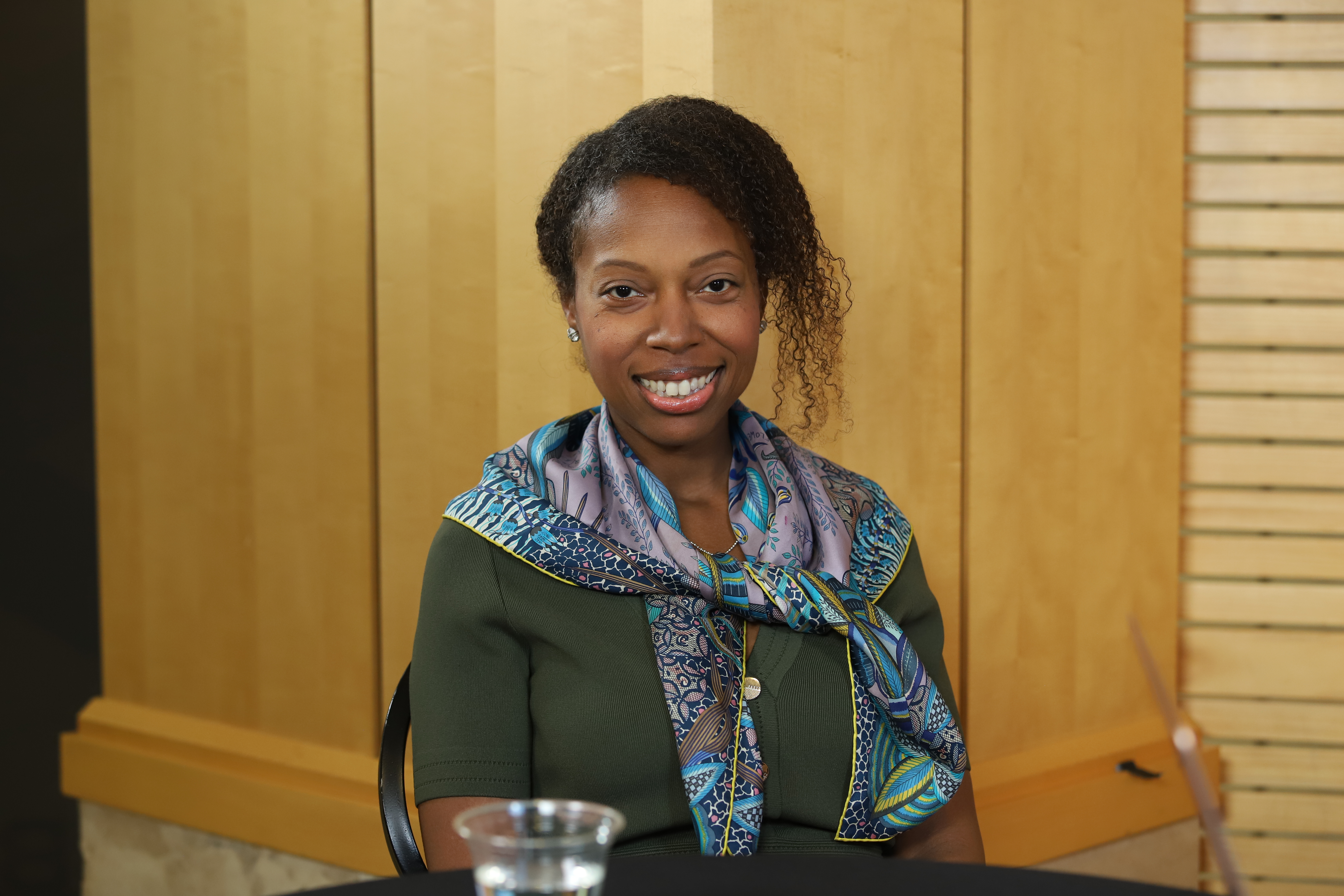 BIG DATA
BIG DATA
 BIG DATA
BIG DATA
 BIG DATA
BIG DATA
Several industries are seeing an influx of women participants and stakeholders doing transformational work, perhaps none more so than technology. It’s in the spirit of highlighting and promoting this paradigm shift that the Women in Data Science initiative exists.
“I love the camaraderie and the community of Women in Data Science; it’s amazing,” said Nandi Leslie (pictured), senior engineering fellow at Raytheon Technologies Corp.
Nandi’s role at Raytheon includes thinking about the most challenging customer problems, primarily at the intersection of data science and applied mathematics, machine learning and cybersecurity. “And then we have a plethora of government clients and commercial clients. So what their needs are beyond those sub-fields as well, I address,” she added.
Leslie spoke with Lisa Martin, host of theCUBE, SiliconANGLE Media’s livestreaming studio, during the Women in Data Science (WiDS) event. They discussed the unique perspectives women offer in an ever-changing technology field, as well as how computational thinking and mathematics can help solve tech issues, such as cybersecurity hacks.
Leslie’s love for mathematics and analytical thinking began at a very young age. Coached by her father, she went on to acquire a mathematics degree from Howard University and proceeded to a doctorate degree at Princeton.
Her experiences have also spanned the entire institutional gamut, from defense contractors to lecturing at the University of Maryland College Park. Having written a total of 55 research articles to date about technology, she also hopes to shed more light on new ideas, concepts and principles in her chosen fields.
The power of computational thinking in the technology industry and opportunities beyond academia for applied mathematicians and data scientists are hot buttons for Leslie. She believes these fields can help solve tech problems, including cybersecurity attacks and other malicious activities that are rampant today as a result of the boom in data storage and cloud technologies. The human element, which is a large part of social engineering and phishing methods, is key to understanding these vulnerabilities and mitigating them.
“Computational thinking and mathematics can be leveraged to better understand and to predict those patterns. And that’s a very rich area for innovation,” she said.
Here’s the complete video interview, part of SiliconANGLE’s and theCUBE’s coverage of the Women in Data Science (WiDS) event:
Support our open free content by sharing and engaging with our content and community.
Where Technology Leaders Connect, Share Intelligence & Create Opportunities
SiliconANGLE Media is a recognized leader in digital media innovation serving innovative audiences and brands, bringing together cutting-edge technology, influential content, strategic insights and real-time audience engagement. As the parent company of SiliconANGLE, theCUBE Network, theCUBE Research, CUBE365, theCUBE AI and theCUBE SuperStudios — such as those established in Silicon Valley and the New York Stock Exchange (NYSE) — SiliconANGLE Media operates at the intersection of media, technology, and AI. .
Founded by tech visionaries John Furrier and Dave Vellante, SiliconANGLE Media has built a powerful ecosystem of industry-leading digital media brands, with a reach of 15+ million elite tech professionals. The company’s new, proprietary theCUBE AI Video cloud is breaking ground in audience interaction, leveraging theCUBEai.com neural network to help technology companies make data-driven decisions and stay at the forefront of industry conversations.